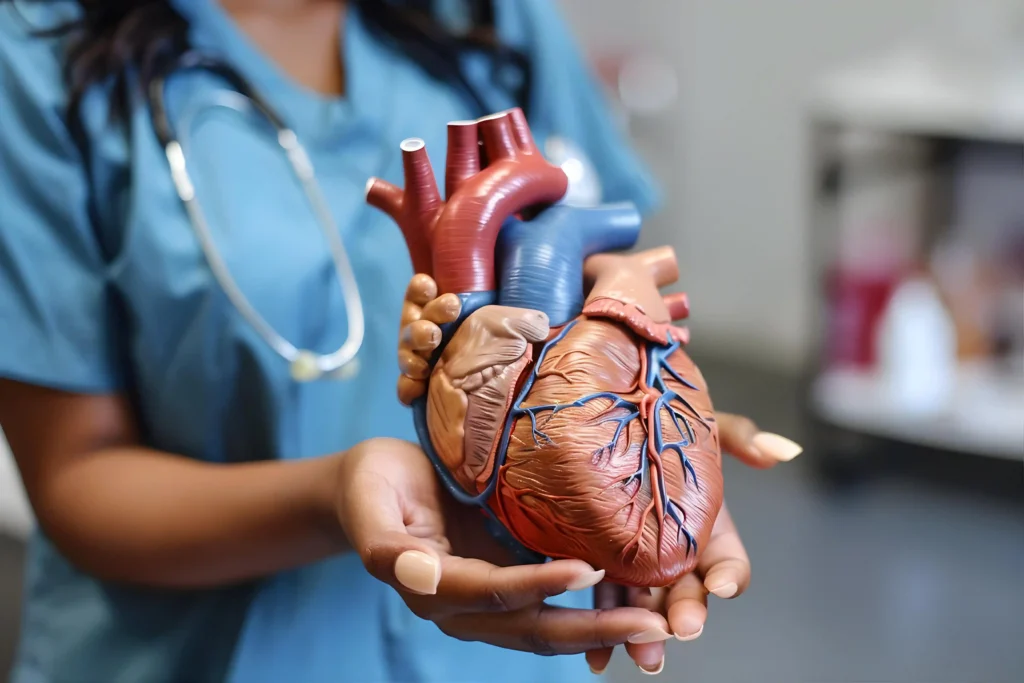What the future of Cardiology holds for your heart health
What the future of Cardiology holds for your heart health
Blog Article
Understanding the Value of Cardiology in Modern Medical Care Services
Cardiology plays an important duty in modern healthcare, particularly as heart illness remains to be the leading reason for death worldwide. Advances in diagnostics and treatment have transformed client treatment, enabling earlier interventions and improved outcomes. Additionally, the shift towards preventive cardiology empowers individuals to handle their wellness proactively. As innovation remains to develop, the integration of innovative remedies might additionally redefine cardiology's effect on public health, prompting a more detailed examination of emerging trends and their ramifications.
The Occurrence of Cardiovascular Disease and Its Impact on Public Health And Wellness
Heart disease continues to be the leading cause of death worldwide, its influence extends far past individual people to influence public wellness systems and economies. The high prevalence of heart problem positions a substantial stress on health care sources, necessitating increased financing for rehab, therapy, and prevention programs. Public health and wellness campaigns need to deal with risk variables such as excessive weight, smoking cigarettes, and inactive lifestyles, which add considerably to the rising occurrence of heart conditions.Moreover, the economic problem related to heart problem is enormous, incorporating not just straight medical prices but additionally indirect costs associated to lost efficiency and early death. Neighborhoods encounter difficulties in handling these expenses, frequently causing differences in healthcare access and results. As the population ages and lifestyle-related risks remain to intensify, the seriousness for efficient cardiology treatments comes to be paramount. As a result, attending to heart problem is not just an issue of private wellness yet additionally a crucial public health and wellness concern.
Advances in Heart Diagnostics and Imaging Techniques
Current advancements in heart diagnostics and imaging techniques have reinvented the area of cardiology, enhancing the ability to discover and keep an eye on cardiovascular disease. Strategies such as heart MRI, CT angiography, and echocardiography have ended up being increasingly sophisticated, giving thorough photos of cardiac structures and features. These methods permit for the very early recognition of problems like coronary artery illness, heart failure, and valvular disorders.Moreover, improvements in non-invasive diagnostics, such as wearable innovation and remote monitoring devices, have actually equipped patients and medical care carriers. These devices assist in real-time tracking of heart rhythms and various other crucial indicators, causing timely interventions. Furthermore, expert system is being incorporated into imaging evaluation, enhancing accuracy and efficiency in medical diagnosis.
Advancements in Treatment Options for Heart Issues
Recent innovations in cardiology have actually caused considerable innovations in therapy choices for heart disease. These include innovative surgical strategies that improve procedural end results and arising medicines that provide brand-new opportunities for treatment. As the field progresses, these advancements play an important role in enhancing patient treatment and outcomes.
Advanced Surgical Techniques
Technologies in surgical methods have actually changed the landscape of cardiology, using new wish for people with heart problems. Minimally intrusive treatments, such as catheter-based treatments, have considerably decreased healing times and medical facility stays. Strategies like robotic-assisted surgical treatment improve accuracy, allowing doctors to browse complex anatomical structures with greater precision. Innovations in imaging modern technology promote real-time visualization during procedures, improving end results. Transcatheter aortic shutoff substitute (TAVR) exemplifies a breakthrough in treating aortic stenosis, allowing shutoff replacement without open-heart surgical procedure. Furthermore, hybrid approaches that integrate surgical and catheter-based methods offer customized options for various heart problems. These sophisticated medical methods not just enhance person safety and security but also increase therapy alternatives, underscoring the important duty of technology in modern cardiology methods.
Emerging Therapies and drugs
As the landscape of cardiology continues to develop, emerging treatments and medicines play a pivotal function in boosting therapy options for heart disease. Developments such as unique anticoagulants and advanced lipid-lowering representatives have actually transformed the monitoring of cardiovascular illness, greatly lowering individual morbidity and mortality. Additionally, the advancement of genetics therapies and regenerative medicine provides encouraging avenues for dealing with problems previously regarded incurable. Clinical tests are continually disclosing the effectiveness of these treatments, pressing the limits of traditional therapies. In addition, the assimilation of electronic health innovations promotes individualized medication, allowing for tailored therapy plans based on hereditary and way of life variables. Collectively, these advancements underscore the dynamic nature of cardiology, enhancing patient results and redefining criteria of care in modern healthcare.
The Role of Preventive Cardiology in Patient Care
Preventive cardiology plays a vital function in client care by concentrating on the identification of risk elements that add to heart disease. With lifestyle alteration approaches and very early discovery strategies, medical care carriers can successfully minimize the incidence of cardio occasions - Cardiologist near me. This aggressive strategy not only improves client results but also advertises long-term health
Threat Element Identification
While heart diseases stay a leading cause of morbidity and death worldwide, effective risk factor recognition acts as a foundation of precautionary cardiology. Identifying danger aspects such as high blood pressure, hyperlipidemia, household, and diabetic issues background is essential for very early intervention. Health care professionals utilize numerous screening techniques to examine these factors, enabling for customized safety nets. In addition, understanding a client's lifestyle choices, such as smoking cigarettes and physical lack of exercise, better notifies danger evaluations. This detailed assessment enables medical professionals to create customized care plans other aimed at mitigating threats. By prioritizing threat factor identification, healthcare her explanation systems can improve individual results and lower the general worry of heart diseases, ultimately adding to enhanced public health strategies and source allotment.
Way Of Living Alteration Strategies
A multitude of studies highlights the important role of way of living modification methods in lowering cardio condition threat. These methods encompass dietary modifications, increased exercise, cigarette smoking cessation, and weight administration. By adopting a heart-healthy diet plan rich in fruits, veggies, entire grains, and lean proteins, people can reduce cholesterol levels and high blood pressure. Routine exercise reinforces the heart and enhances overall cardio health and wellness. Furthermore, giving up cigarette smoking considerably lowers the risk of heart problem and improves healing prices for those with status quo. Weight management additionally contributes to cardio wellness by reducing other threat variables such as diabetes and hypertension. Executing these way of living changes not just promotes specific health yet likewise acts as a keystone of preventive cardiology in client treatment.
Early Discovery Strategies
Way of living alterations substantially add to lowering heart disease dangers, but they are most reliable when coupled with early detection techniques. Preventive cardiology emphasizes the significance of recognizing prospective heart concerns before they intensify into significant conditions. Methods such as blood pressure tracking, cholesterol testing, and advanced imaging modern technologies like echocardiograms play essential duties in assessing cardio wellness. Biomarkers and hereditary screening also boost the precision of very early detection, enabling customized preventive techniques. Regular cardiac danger evaluations equip doctor to interfere proactively, possibly stopping heart assaults and strokes (Cardiology care). By incorporating these very early detection methods right into regular treatment, people can benefit from timely lifestyle treatments and targeted treatments, ultimately enhancing and improving end results high quality of life
Integrating Modern Technology Into Cardiology Practices
As improvements in innovation remain to reshape various areas, the assimilation of ingenious tools and systems right into cardiology practices has actually ended up being crucial for boosting person treatment and end results. Telemedicine systems permit cardiologists to keep track of individuals remotely, boosting access to care while minimizing the problem on medical care facilities. Wearable gadgets, such as smartwatches, allow constant heart price monitoring, notifying both people and medical professionals to possible concerns in real-time. Furthermore, man-made intelligence (AI) is being made use of to analyze large amounts of cardiac data, helping in early medical diagnosis and personalized therapy strategies. Advanced imaging methods, consisting of 3D echocardiography, improve visualization of heart structures, resulting in much more accurate interventions. Digital health and wellness records (EHRs) enhance client details monitoring, ensuring that cardiologists have instant access to critical information. With each other, these technological improvements are changing cardiology, promoting positive monitoring Visit Website and boosted health outcomes for people with cardio problems.
The Relevance of Individual Education And Learning and Interaction
Client education and learning and engagement play an essential duty in the administration of cardiovascular health and wellness. By furnishing clients with expertise about their conditions, therapy alternatives, and way of life changes, healthcare providers encourage people to take an energetic function in their treatment. This positive technique can bring about improved adherence to recommended medicines, nutritional modifications, and workout regimens, inevitably reducing the danger of complications.Engagement likewise promotes a solid patient-provider connection, encouraging open communication and trust. When clients really feel educated and involved, they are a lot more most likely to voice concerns and ask inquiries, which can lead to much better medical outcomes. Furthermore, instructional resources, such as workshops or electronic systems, can boost understanding and promote self-management approaches. Generally, prioritizing client education and engagement is important for enhancing cardio health and wellness, enhancing high quality of life, and decreasing health care expenses related to heart diseases.
Future Trends in Cardiology and Their Possible Effect

Regularly Asked Inquiries
What Way Of Living Adjustments Can Decrease Heart Problem Threat?
The current question addresses way of life adjustments that can substantially reduce heart problem threat. Cardiology Jupiter. Taking on a balanced diet, taking part in normal exercise, keeping a healthy weight, taking care of tension, and staying clear of tobacco can especially improve cardio health
Just How Can I Recognize Very Early Indicators of Heart Troubles?
Recognizing very early indications of heart issues involves monitoring symptoms such as breast discomfort, shortness of breath, tiredness, and irregular heart beat. Timely recognition of these indicators can prompt required clinical evaluation and intervention for far better results.
What Are the Distinctions Between Cardiologists and Heart Surgeons?
The differences in between cardiologists and cardiac cosmetic surgeons depend on their duties; cardiologists mostly detect and manage heart disease through non-invasive approaches, while heart cosmetic surgeons execute operations to correct architectural heart problems. Each plays a vital, distinct duty.

Just how Typically Should I Get My Heart Wellness Checked?
The frequency of heart checkup varies based upon specific risk variables. Generally, adults need to go through assessments each to 2 years, while those with present conditions might need more constant assessments as recommended by health care experts.
What Duty Does Genes Play in Heart Problem Threat?
Genes considerably affects cardiovascular disease danger, with domestic patterns suggesting inherited problems. Details genes can predispose people to high blood pressure, cholesterol problems, and other cardiovascular issues, highlighting the importance of genetic testing in evaluating heart health and wellness. Heart disease stays the leading cause of death globally, its effect extends far past private clients to influence public health systems and economic situations. Public health and wellness campaigns have to resolve danger elements such as excessive weight, smoking cigarettes, and inactive way of livings, which contribute greatly to the climbing incidence of heart conditions.Moreover, the economic problem associated with heart condition is enormous, encompassing not only straight medical prices however additionally indirect costs associated to lost efficiency and early death. Preventive cardiology plays a necessary function in individual treatment by concentrating on the identification of risk variables that add to heart disease. Fabricated intelligence (AI) and equipment learning are improving diagnostics and individual surveillance, enabling very early detection of heart diseases. The differences in between cardiologists and heart doctors exist in their duties; cardiologists largely diagnose and manage heart conditions via non-invasive methods, while cardiac doctors perform medical treatments to remedy architectural heart issues.
Report this page